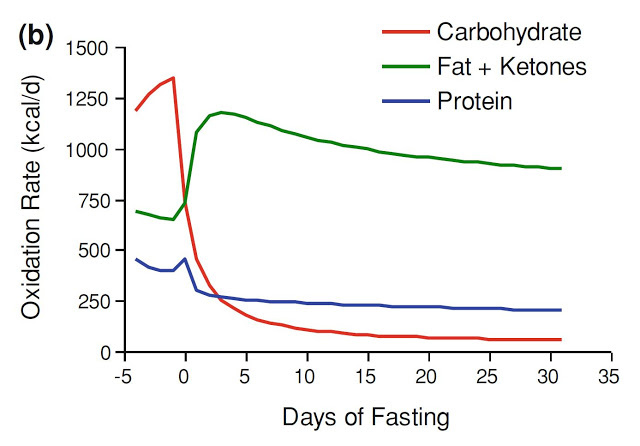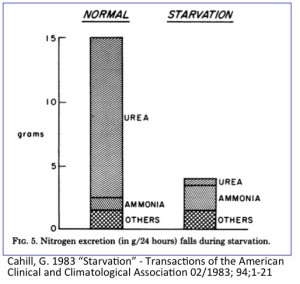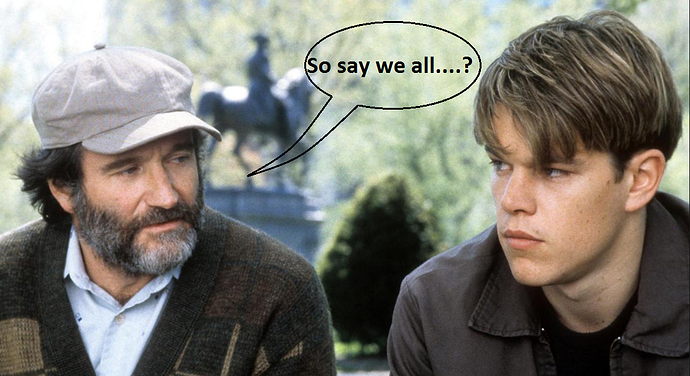Sorry I’m just now getting back to this, been very busy the last few days, that’s a good thing because it’s made the days go by, it’s been rough a few days though, every is great when moving around but runs out kind of quick. I have a theory that fat takes longer to burn/process and when we run out the process of burning the “next” pound in order to re-fill our stores is noticeable and one of the things that makes this tough.
Going forward with my response, a few assumptions/biases/general thoughts:
- Studies are flawed in lots of ways, the list can long. I don’t want to get into “your study VS my study” but I still think that that studies are a guideline rather than something to be followed as gospel. For example, a study is written, it is flawed, the abstract is sensationalized so it’s published, the media gets a hold of it and by the time we are reading “sugar is good for you!” (and not taking the time to read the actual study) the data/info/truth is far from clear.
- We all suffer from biases and psychological failures, we often seek confirming evidence and once we form an opinion, we find it hard to stray from that. I’ll admit I’m as guilty as this as anyone BUT I try very hard to be open to new ideas (like switching to a keto diet…) and know that I can fool myself easily (Richard Feynman’s quote) but I try to do diligent research and form my own opinions/seek good data/evidence.
- Because of the factors above, I maintain that to find out what works for ME I need to do a series of experiments and dial in what I can do, ignore much/most of the “noise” in nutrition/health/fitness and confirm what’s best for me, and realize that it might not be the best thing for my spouse, my kids, my neighbors etc.
That’ said:
Reviewing Phinney’s video, let’s consider a few points:
Phinney discusses 5 peer reviewed studies when making the following points:
- Zero concerns with a fast up to 16 hours but one or more of the studies he’s referencing involves protein malnourished patients (I get plenty of protein when eating, I feast before going into a fast including consuming protein shakes.)
- Fasts over 48 hours, body breaks down some protein for gluconegensis, this process increases over 4 days when it levels out over 4 days and slows down to 1/4 pound of LBM per day.
I fasted for 15 days in Mar/April. Taking Phinney’s numbers I would have lost 14 pounds of LBM during that time. Considering that I started that fast at 165 and ended at 153, I don’t think that all 12 pounds were LBM, a good amount was water weight, some of it was surely fat (my pic in earlier post was post 15 day fast…).
Continuing the point above, Phinney says that most healthy human can tolerate this level of LBM (I’d maintain that his numbers are “high” and it’s obvious most healthy folks can tolerate it… look at all those doing it on this forums and others like reddit etc).
- Phinney states that metabolism goes down due to long fasts, that it will drop 25% within a week or two of total fast. Not sure what study this comes from (I could not find them/got tired of looking) but if it’s from the study involving protein starved patients, how does that apply to me? (lots more issues about studied used in a bit). I personally have not seen this slowdown, it would lead to weight gain when eating “normal keto” post fast. I can easily control my weight post fast, beer causes it to go up, not drinking beer results in maintaining weight. Phinnney says resting metabolism will only go up when sodium is reduced (not sure where this was going). I might do some more digging on this idea in the future.
Now- back to the LBM concept. Phinney is using the studies that discuss nitrogen loss (it’s a proxy for protein loss). One of those studies had 14 patients, 9 obese and 4 non-obese, one was “protein free” (whatever that means). This study of 14 patients can’t be a proxy for every human, it’s a guideline and something to “jump off from” but I refuse to accept that the data from this one study is enough info to ignore my own results and scare anyone from fasting. If I remember correctly, another one of the studies only had 9 patients total, once again, low numbers that have (in my estimate) a very near chance of being a proxy for how my body, with all it’s unique variables, will react to a long term fast. Phinney does say that obest people were relatively protected from the nitrogen loss when fasting, for what that’s worth.
Other notes, he discusses:
- Re-feeding (be careful)
- Autophagy- he says it’s an ideological term that he doesn’t put much stock in because we turn over cells daily and he says that he doesn’t know if cleansing (fasting) is any better than keto levels (high) of beta hydroxybuterate but, he doesn’t have a definitive answer. Response: Phinney admit’s he’s not sure and leaves it open. Taking this into account with the information/POV of Jason Fung, Rhonda Patrick and plenty of others, I think there is plenty of evidence and support that autophagy is real. In my own experience, I’ve felt the best in my life 2-4 days post fast (due to creation of new cells/mitochondria once the feeding begins?).
Lastly, having read Art and Science of LC living by Phiney and Volek, they discuss how the average person has over 40K calories available to them (from stored body fat). If our RMR were to run 2K cals, then shouldn’t we be able to go 20 days on that? This doesn’t take into account working out when doing a long term fast but if the idea of “using” that 40K of calories while on a keto diet works, why doesn’t it “work” when fasting?
Having used an IF/fasting/Keto protocol for over a year now, and having exercised a great deal/and for long periods, while fasted, maybe I’ve acclimated my body and Phinney’s concern about LBM doesn’t apply to me, I’d submit that it won’t apply to everyone, if not a very small portion of the population, as long as you are not truly starving or living on a VERY low calorie diet for long periods, and THEN fasting, then Phinney’s referenced studies/points just don’t convince me.
I hope this makes sense and doesn’t ramble too much. I’m at that point where I can’t sleep that well due to very high ketone levels and, when awake, have a very clear mind but some difficulty with communicating effectively (a little scatter brained/hard to focus at times).
I’ll come back to this and try and clean it up over the next few days.
Cheers to all, six days almost down, only 14 to go!





